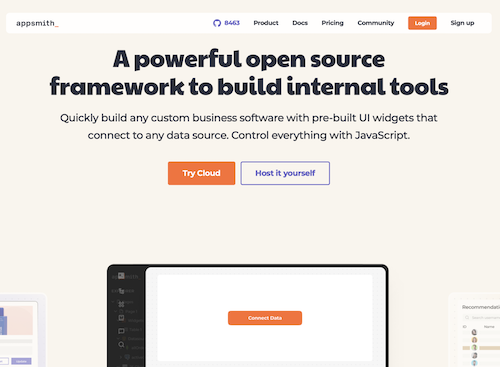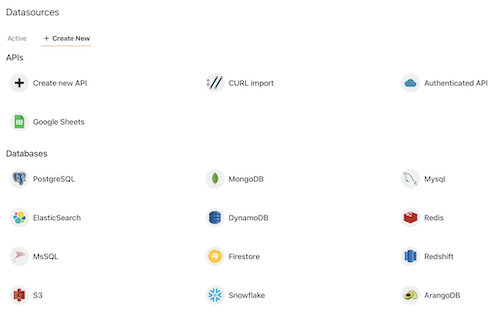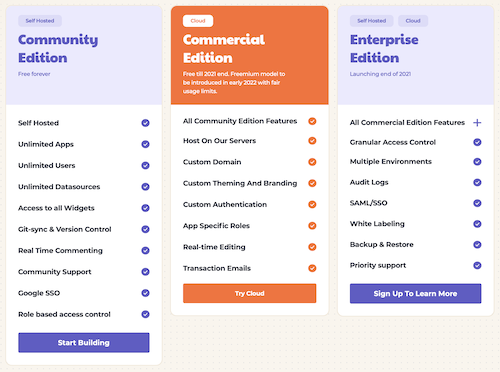Low Code Applications with Appsmith
Recently, I’ve been spending a fair amount of time researching low code solutions for internal applications at work. We use several different systems and it can be time consuming to jump from system to system looking up information on an employee. I was looking at building a custom Rails application, but I don’t have the chops for that big of a project…yet.
While browsing the DigitalOcean Marketplace, I ran across an application called appsmith. [AppSmith(https://www.appsmith.com/)] is an open source web application that helps you build internal applications (web applications). This fit exactly what I was looking for, and now, I needed to see if it was as easy as they made it out to be. As an alternative, you can create a droplet on DigitalOcean for appsmith.
I should note that I have seen ads being targeted to me for retool. Retool appears to do everything that appsmith does, but retool is not open source. I signed up for an account on Retool.com as well, but haven’t completely tested it out. I’m not sure which one came first and I’m not sure that really matters so much to me at this point.
What is low code?
The term low code, in this context, refers to how much code you need to know in order to be able to build a functional web application. You do not need to be a frontend developer writing CSS and JavaScript as the components are prebuilt and allow you to drag-and-drop components onto the page. You also don’t need to know MVC frameworks for designing the functionality in controllers or build the models that will be used in the app.
Low code is just that, low code. You will not be writing methods/actions in a controller, nor will you be writing all of the CSS and JavaScript needed to make your application usable. For appsmith, you need to know some JavaScript. To level set, I know just enough JavaScript to be dangerous.
Getting Things Configured
Right after signing in for the first time, you are prompted to add a a data source to start building your application. I have a hosted Postgres database, so I selected that and entered my settings. Very painless.
They offer many popular data source options, including one for Google Sheets, which I’ve never seen or thought about using previously.
I went through their starter project to see how fields and views are connected. As expected, it took me about 10 minutes to get my bearings and figure out the interface, and another 20 minutes before I was confident in what I was doing. Everything is drag-and-drop, but you’ll need to have some familiarity with JavaScript to hook up the view components to the data returned from the data sources.
I am super impressed with appsmith’s documentation. It is packed with all sorts of helpful information on field types, tutorials, and short form videos to provide you with just the right amount of information. They have a Discord server that is fairly active and the appsmith team (and community members) replies to requests very fast.
Now that I’ve been using appsmith for a few days, I’ve been able to put together a pretty darn cool application as a proof of concept. My overall goal with this application will be to significantly reduce the amount of time that our support agents need to get a full picture of the person calling in for assistance. The application interfaces with our data warehouse, ticketing system (Freshdesk), and our applicant tracking system (JazzHR). The ticketing system and applicant tracking system both have very robust APIs that allow us to perform GET and POST requests.
What is the cost?
Right now, appsmith offers three plans: Community Edition, Commercial Edition, and Enterprise Edition. The Community Edition is their self-hosted option (it is included in the DigitalOcean Marketplace as a droplet).
The Commercial Edition is free until the end of 2021, so I’m really holding back my enthusiasm for the tool until I see what the cost ends up being. They have a link to their pricing page that details out their pricing philosophy. I asked if they had any updates on the pricing options in the middle of November 2021, but didn’t get any new information from them.
Pricing aside, appsmith is a really cool tool to use and it keeps getting better with their frequent updates.
(Article contains referral link for DigitalOcean)


